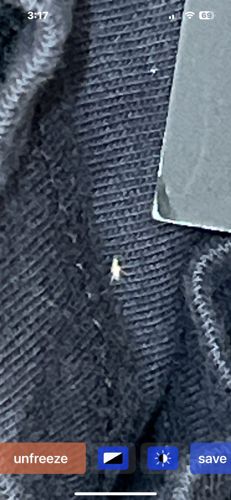Booklouse / Psocid
Scientific Name: Psocoptera (various species)
Order & Family: Order: Psocoptera, Family: Varies (e.g., Liposcelididae, Psocidae)
Size: Typically '1 mm' to '2 mm' in length

Natural Habitat
Damp, quiet, and undisturbed places with high humidity. Often found in books, papers, stored food products, wallpaper, and sometimes on plants or trees outdoors.
Diet & Feeding
Molds, fungi, starch-based materials (e.g., book bindings, wallpaper paste), dried plant material, dead insects, and cereal products.
Behavior Patterns
They are typically wingless or have vestigial wings (especially indoor species). They are very small, fast-moving, and often go unnoticed until their numbers increase. They thrive in high humidity and are often indicative of moisture problems. Some species are gregarious, living in small colonies.
Risks & Benefits
Potential risks include damage to paper products (books, documents), stored food items, and wallpaper due to their feeding on mold and starches. They are generally harmless to humans and do not bite or transmit diseases. Benefits are minimal, though some outdoor species may play a small role in decomposition.
Identified on: 10/12/2025